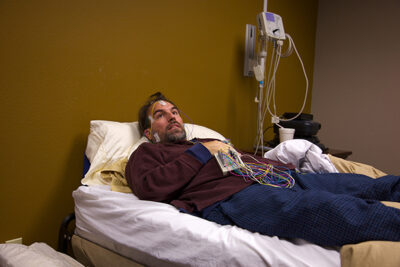
Irregular Sleep Could Cause More Inflammation
By Jonathan Springston, Editor, Relias Media
Patients who slept well each night for several weeks exhibited proper immune function, according to the results of a small study.
NIH-funded investigators recruited 14 adults in New York City to participate in a six-week study during which subjects emulated regular, healthy sleeping patterns (about 7.5 hours of sleep per night). Subjects also cut back on sleep to about six hours per night over a different six-week period. There was a four- to six-week washout period separating the two different six-week study intervals.
For each sleep type, researchers collected blood samples in the morning and afternoon during the fifth and sixth weeks. When subjects slept for fewer hours, researchers noted these blood samples contained higher levels of circulating monocytes in the afternoon and more immune stem cells, showing evidence of more immunity activation.
The consistent production of these immune cells can strain the hematopoietic system. Over time, this creates a homogenous immune environment, which can spur clonal hematopoiesis, which has been linked to a higher risk for developing cardiovascular disease (CVD).
“Sleep modulates the production of cells that are the protagonists — the main actors — of inflammation,” said Filip K. Swirski, PhD, a senior study author. “Stem cells have been imprinted, or genetically altered, under the influence of sleep restriction. The change isn’t permanent, but they continue to self-replicate at a higher rate for weeks.”
Although more research with larger study cohorts are needed, Swirski and colleagues wrote, “These data have important implications for inflammatory diseases such as sepsis, CVD, and cancer, and may suggest that early life sleep behavior dictates future disease severity. Our findings support the hypothesis that periods of poor sleep, even if followed by sleep recovery, have sustained consequences on immunological health.”
For more on this and related subjects, be sure to read the latest issues of Integrative Medicine Alert, Internal Medicine Alert, and Neurology Alert.
